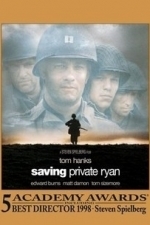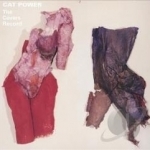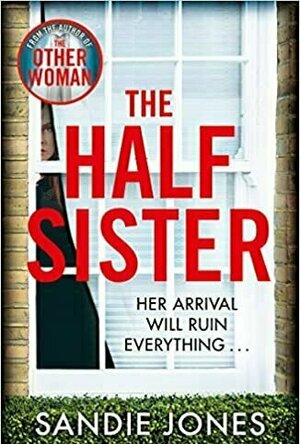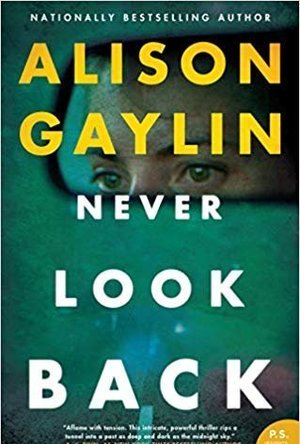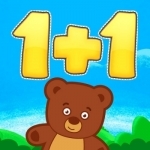
PersonalityMatch - Personality Test
Lifestyle and Education
App
Discover who you really are! Find yourself. Improve your relationships. Take a free personality...

Insight Notes - notes for health professionals
Business and Productivity
App
**As featured in the American Psychological Association’s Monitor on Psychology** Insight Notes...
Sarah (7800 KP) rated Saving Private Ryan (1998) in Movies
Feb 9, 2021
When I think of war films, I immediately think of Saving Private Ryan. This is partly because I shamefully haven’t seen the majority of the older classic war films (but I may have done by the time I reach the end of this list), and also because this is the first war film I ever saw. I have my dad to thank for introducing me to this, he was obsessed with anything war related, and while I would never admit this to him as a teenager, even back then I could appreciate how brilliant this film was.
Saving Private Ryan is a 1998 World War II epic from Steven Spielberg that follows a group of soldiers as they embark on a mission across France to rescue a man who’s 3 brothers have been killed in action. It stars Tom Hanks as Captain Miller as he leads a host of recognisable faces including Vin Diesel (Caparzo), Barry Pepper (Jackson), Tom Sizemore (Horvath), Giovanni Ribisi (Wade), Edward Burns (Reiben) and Jeremy Davies as Upham as they trek across country to find Matt Damon’s Private Ryan.
The main plot is definitely very Hollywood, but the film itself looks and feels like anything but a glamorous Hollywood blockbuster. This is by far the grittiest, darkest and most horrific war film I’ve seen to date. Spielberg does not shy away from displaying the true horror of war, from the blood and gore of the fighting to the physical and psychological effects it had on the soldiers , it’s all here in all of its horrifying glory. One of the most memorable scenes of any war film is the opening sequence of the D-Day landings, that shows a haunting and frightfully bloody side of the war that no other films have managed to capture in such a dark and emotionally draining manner. Even the opening scene in Arlington Cemetery, especially when paired with a moving score from John Williams, is a tearjerker only a few minutes into the 2.5 hour runtime. I don’t know how factually realistic this whole film is, but it’s definitely one of the most compellingly believable films I’ve ever seen, especially the death scenes.
Visually the cinematography helps with the dark and gritty feeling. Everything looks grey and drab, even hazy at times, and this only helps to promote the overall tone of the film. Admittedly there are parts of this now that do look a little dated and there are a few early scenes with a strange out of place camera flare, but considering it was released 23 years ago, it’s aged pretty well and still looks quite good. It’s helped by a truly stellar cast lead by the ever brilliant Tom Hanks, who’s turn as Captain Miller is hauntingly good. The fact that he didn’t win the Oscar for his performance is criminal. Him alongside the rest of the cast, including memorably brash Brooklynite Reiben (Burns) and God-fearing elite sniper Jackson (Pepper), completely embody the camaraderie, friendship and sometimes hostility shown by the group of men perfectly. My only slight criticism of this film is that after growing to know and like these men over the course of the film, there is a question mark over some of their fates at the end which is a tiny bit disappointing.
Saving Private Ryan won 5 Oscars, including Best Director and Best Cinematography, but was nominated for many others including Best Picture, which in my opinion it deserved far more than the film that won in 1999 (Shakespeare in Love), as this is undoubtedly an all time classic war film.
Natasha Khan recommended Covers Record by Cat Power in Music (curated)
Ivana A. | Diary of Difference (1171 KP) rated The Half Sister in Books
Oct 5, 2020
About The Author:
I have heard a lot about Sandie Jones, but I haven’t read any books by her prior to The Half Sister. Sandie Jones has worked as a freelance journalist for over twenty years, and has written for publications including the Sunday Times, Woman’s Weekly and the Daily Mail. She lives in London with her husband and three children. The Other Woman is her debut novel.
Synopsis:
I need to mention that the original synopsis of the book may be a bit misleading. Lauren and Kate are two sisters, but they don’t get along too well and their relationship is complicated.
Kate is a reporter, married to lovely Mark, and going through many rounds of IVF treatment, hoping to start a family. Kate had a very close relationship with her father until the day he died, but was never too close to her sister Lauren and their mother, Rose.
Lauren, on the other hand, is a full time mom of three, with a demanding and overprotective husband. She is very close to her mum, and had a complicated relationship with her father, never forgiving him for understanding her in the past.
One day, while Kate, Lauren and their mum are having their usual Sunday roast, a woman knocks on their door and drops a bombshell. Jess claims to be their half-sister.
This allegation is met with denial - how could she be a secret daughter of their father. Their mother is devastated, Lauren is not surprised, and Kate doesn’t believe Jess at all. But as more secrets start to unravel, no one can know who to trust anymore…
My Thoughts:
I loved the idea of this book, even though I am not too big of a fan of domestic mysteries and drama. My impressions were that this would’ve been more psychological thriller, but I was in the wrong. However, despite this, the book is really surprisingly well-written and kept me on my toes until the very end.
The lives of Lauren and Kate in particular were very well written. I can imagine people being able to easily relate to their struggles. The difference between the two sisters is like night and day. I loved the fact that this book was not sugar coating this, and it didn’t end it with a “happily ever after”. Instead, it ended with “we know we are different, and we are working to fix our relationship in its natural course”.
The story about how Jess comes into their lives, and the whole DNA situation was extremely not believable. As well as the fact that doing another DNA test at the beginning of the novel would have solved all assumptions, rather than people believing hearsay and creating more drama. However, I am also aware that drama was needed to keep the story going, so I can’t hold a grudge.
The ending was predictable half-way through the book. Some scenes are completely unnecessary and make the story more complicated. There are many triggering moments in this book. Cheating, domestic violence and abuse, both physical and emotional and abortion. This book may also trigger people that have had difficult relationships with their parents and/or siblings.<br/><br/>Even though not a favorite thriller, I enjoyed this book and recommend it to everyone that loves domestic thrillers. It is a fast-paced read, and the plot twists are juicy.
Kristy H (1252 KP) rated Never Look Back in Books
Sep 2, 2019
This was an excellent thriller that had me hooked from the first page. It's dark, gritty, and utterly mesmerizing. When I started it, I was thinking to myself, not another podcast mystery, but little did I know... this book is totally addictive and brings in the podcast element in a seamless, fresh way.
It's told from the perspective of several of our main characters--particularly Robin and Quentin. We also get excerpts from a school assignment of April's when she was fifteen: letters to her future child. These slowly reveal what happened during the killings, and they are told in a spot-on voice of a fifteen-year-old girl. The way everything is woven together is perfect: I found myself completely captivated and read basically the last half of the book in one breathless setting, staying up past my bedtime to finish it.
We learn that both Gabriel and April died in a fire at the site of their last attempted murder. So when Quentin receives a tip claiming that April Cooper is still alive, it changes everything, including the focus of his podcast. When he starts to believe that Robin's mother is April, things get even more interesting. I loved the suspense--constantly wondering if April was alive and if she was, who she could be. And then, there's the aspect of was April "good" or "bad" during the killings. So many people blamed her for the deaths of their loved ones, and nothing is black or white in this book.
Even Quentin. Since his past is strongly affected by the murders, we find ourselves wondering if we can trust him, too. Quentin's grandfather basically gave up raising his daughter, Kate--Quentin's mother--after the death of his wife and young daughter. As such, Quentin's own mother wasn't much of a parent to him. Quentin's own bitterness and anger shines through--a strong theme in the book. Can we rely on someone so angry, we wonder? I felt for him, and his devoted husband and loving best friend and podcast partner. So many of the characters are intense, and each is so well-crafted and unique. Each flew off the page.
This is often a dark book, and there are many scenes of violence. But, for me, it was the emotional scenes that were the toughest to read. There are many touching moments, too, and I found myself attached to several of the characters. Reading young April's letters was quite a feat. Gaylin is such an excellent writer, and she just pulls you into the story so effortlessly--you feel as if you are there with her characters. Throw in some great twists and turns and this is an excellent and suspenseful novel.
The ending was a tough one, but I get it. Overall, I really enjoyed this dark psychological thriller. I am just loving Gaylin's recent books and need to go back and read some of her previous works (there's a little Brenna Spector shoutout in this one for those of you who are fans). Definitely recommend! 4.5 stars.

Blissful Birth by Glenn Harrold & Janey Lee Grace: Advice & Self-Hypnosis Relaxation
Health & Fitness and Education
App
Blissful Birth is the ultimate app to help you before, during and after giving birth. Having a...

Hello Next! Forget your ex.
Entertainment and Lifestyle
App
Just broke up? Haven’t seen your ex for a while but your heart is still broken with no one there...

My Dictionary Pro
Education and Entertainment
App
Do you want to learn a foreign language quickly? A unique program for memorizing words will help you...
